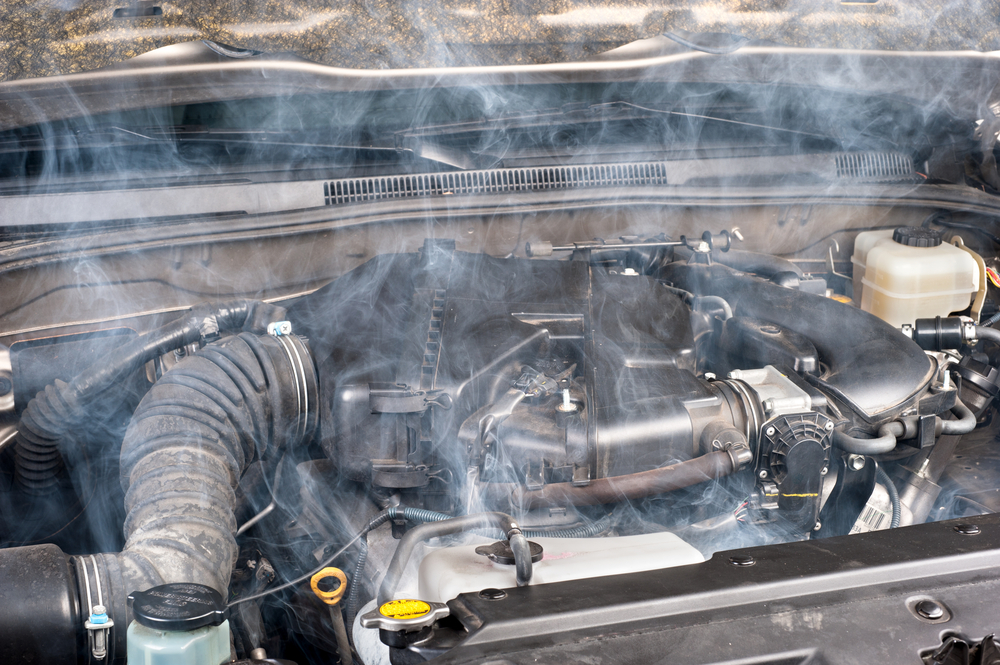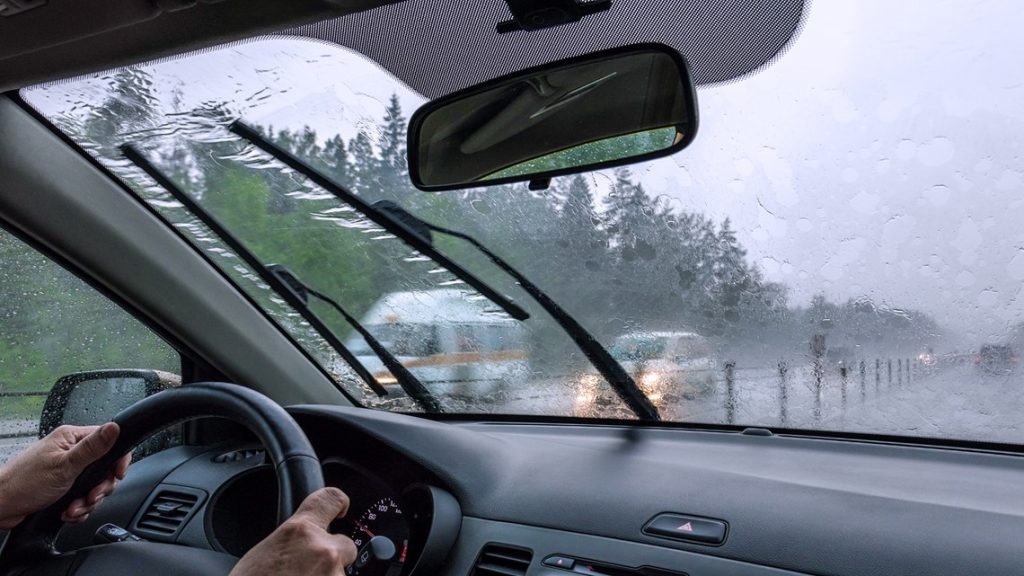Taking a long drive across cities is usually intriguing until you embark on a terrible one. Driving through mountains and lakes always fills the air with a calming feel. However, a car breakdown will likely ruin exciting experiences like these. The most common car problems on road trips often occur due to evading car checkups or overstressing the engine.
Studies suggest that car problems are more likely to occur during long road trips, especially when you don’t usually use the car for long trips. Whether you’re going for a picnic by the beach, a hunting trip in the woods, a little summer vacation, or to your grandparents’ house for holidays, when packing for your next trip, you may want to consider preparing your car for the journey. Unpleasant surprises in your car can easily ruin road trips; such experiences will always top the charts for the most devastating experiences.
The Most Common Car Problems Faced on Road Trips
Facing common car problems on road trips is terrible because sometimes the car gets stuck in remote areas, making it more challenging to get it to an auto workshop for repairs. A car breakdown in an unfamiliar place is a nightmare for every road user. In addition to rendering travelers stranded and ruining their plans, most cases require towing the vehicle and incurring more costs. Hence, it is always safer and cheaper to avoid these problems and make necessary preparations in case.
This post has compiled a list of the most common car problems faced on road trips. We also described some tips on preventing and preparing for these breakdowns. This includes;
1. Car Battery Failure

Battery Failure is among the most common car problems during road trips; you cannot even start the car. Car batteries usually fail without warning as they are designed to perform at maximum capacity till failure. As tough as they look, car batteries are merely sensitive electrochemical devices and, as such, susceptible to damage from temperature changes. They get weakened from very cold and hot temperatures, severe vibration, or being drained for a long time; these affect the electrical and chemical system of the batteries.
If you usually use your car for short trips, it drains batteries as the car doesn’t stay on long enough for the alternator to charge the batteries, leaving it drained for a long time and damaging the battery. Vibrations mess with the electrochemical cells in the battery, causing it to weaken. Cold temperatures cause slow charging, leading to drainage over longer durations. On average, a car battery can last between three to five years (it can last longer if you maintain it correctly). Very hot temperatures quickens corrosion in the battery and reduces its lifespan.
Before packing up for your next road trip, take your battery to an expert to check the battery and car charging system. This is to ascertain whether it is adequately charged and maintains a healthy temperature to avoid disappointment during your trip. This is especially crucial if you have used your battery for over a year.
2. Overheating Engine

An overheating engine is a pervasive and dangerous problem challenging long-distance travelers, especially during summer when the atmosphere is hotter. Heating above the temperature limit can completely shut down a car engine, and if not treated quickly, it can blow off the top of an engine. Cars have a cooling system comprising a radiator and fan(s). These components require periodic servicing to avoid sudden failure.
In most cases, car engine temperatures heating up above the limit is usually caused by little mistakes. One such error is when the driver forgets to gauge the radiator coolant and drives the car with it empty. Sludge from old fluids and inadequate lubrication cause overheating in engines. They hinder the cooling system’s performance. This causes the engine to work harder than it was designed to.
To avoid the risk of an overheated engine, you have to examine the fluid levels (e.g., power steering oil), check the radiator coolant level, and let qualified technicians check the cleanliness of your car engine before embarking on your next trip. Be sure to carry extra fluids and coolants (especially for summer drives) along for your next trip, especially for older vehicles rarely traveling long distances. Some of them burn out engine fluids faster. Also, pay attention to your thermometer on the dashboard to know when the car temperature exceeds the standard threshold.
3. Faulty Lights & Windshield Wipers

Endeavor to check all light compartments before embarking on road trips, especially when the journey is expected to stretch into the night. From the head and tail lamps, the brake and reverse lights, and fog lamps to the dashboard and other interior lights, every compartment should be in perfect condition. These electrical faults are usually caused by spilling water when washing cars. Always take precautions when cleaning the interior, as some sensors are affected by water.
Windshield wipers are essential for visibility in wet and dusty conditions. The primary cause of light and windshield wiper issues is terrible or burnt fuses. Ensure your lights and wipers are in appropriate condition before traveling. This may seem minor, but it is one of the most common car problems drivers face on road trips. Neglecting these routine checks has left many road users stranded and caused fatal accidents.
4. Tire Blowouts and Punctures

A tire blowout is a super scary car problem, and it is known to result in fatal accidents due to loss of control and collision. In most countries, road users must travel with a spare tire, a car jack, and a tire change kit. Let’s look at the possible causes of these blowouts. Tyre failures are mainly caused by poorly patched tires and uneven tire wear. Tires wear randomly when they are not properly rotated/aligned. It is mandatory to check all tires (including the spare) and ensure they are roadworthy before leaving home, even for short trips.
Check your alignment regularly to avoid uneven wear or failure along the line. When your tires get worn, endeavor to change them; worn tires are unsafe, especially during winter.
Over-pumped and under-pumped tires are also prone to cause blowouts over extended usage. Hence, you must regularly check and gauge the pressure to be uniform and equal to the required parameter for your vehicle. Manufacturers usually inscribe the required pressure on the tire body. Inscribed as well are the expiration dates. Yes! Tires expire. You ought to be conscious of that to avoid getting a tire that will wear faster or fail in harsh weather conditions.
Always carry a ready-to-use spare tire, a tire wrench, a hydraulic car jack, and a tire gauge when traveling. Visit an auto shop to check your tires’ alignment, thread, and pressure. An overstressed engine, excessive abrasion of brake pads, poor suspension, and increased fuel consumption result from poorly aligned/gauged tires. They may look sturdy, but tires are very fragile and require delicate attention. After all, they bear the weight of the entire vehicle.
5. Brake Failure

This is probably the scariest common car problem on a road trip; it is more likely to result in a fatal crash than any other car issue. This is arguably the most easily identified issue in a car. Brake failures are primarily a result of overworn brake pads, inadequate brake fluids, or brake system problems.
In newer cars, brake system issues are usually diagnosed by the car and indicated on the dashboard. Furthermore, your braking system requires attention if your car vibrates or makes noises when you apply brakes.
Before going on trips, endeavor to get your car checked for braking issues to prevent the consequences of brake failure. If you notice any distortion in your brakes, your next stop should be an auto workshop!
Conclusion
The harm from a terrible road trip cannot be overstated. Hence, taking precautions to avoid these common car problems on road trips is crucial. We can all agree that preventing these car problems at least saves you the cost of hiring a tow van if your car breaks down on a road trip. As you prepare for your next road trip, prioritize preparing your vehicle for a problem-free journey. Have a blast!
